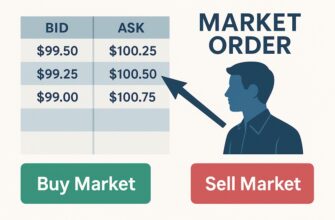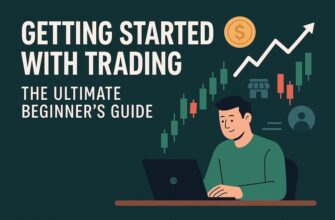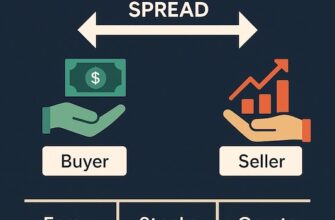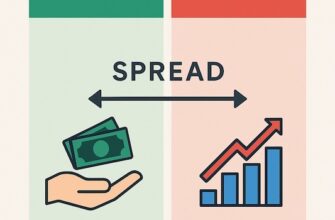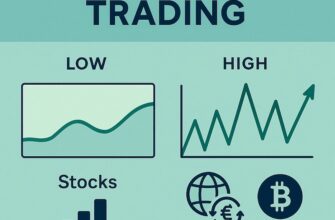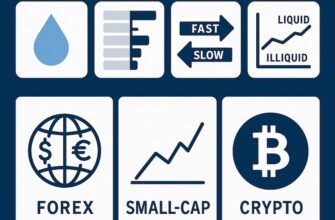For anyone entering the world of financial markets, one of the first questions is: should I become a trader or an investor? While both approaches aim to make money from markets, their methods, timelines, and philosophies differ significantly. Understanding the difference between trading and investing is crucial if you want to choose the strategy that fits your goals, personality, and risk tolerance.
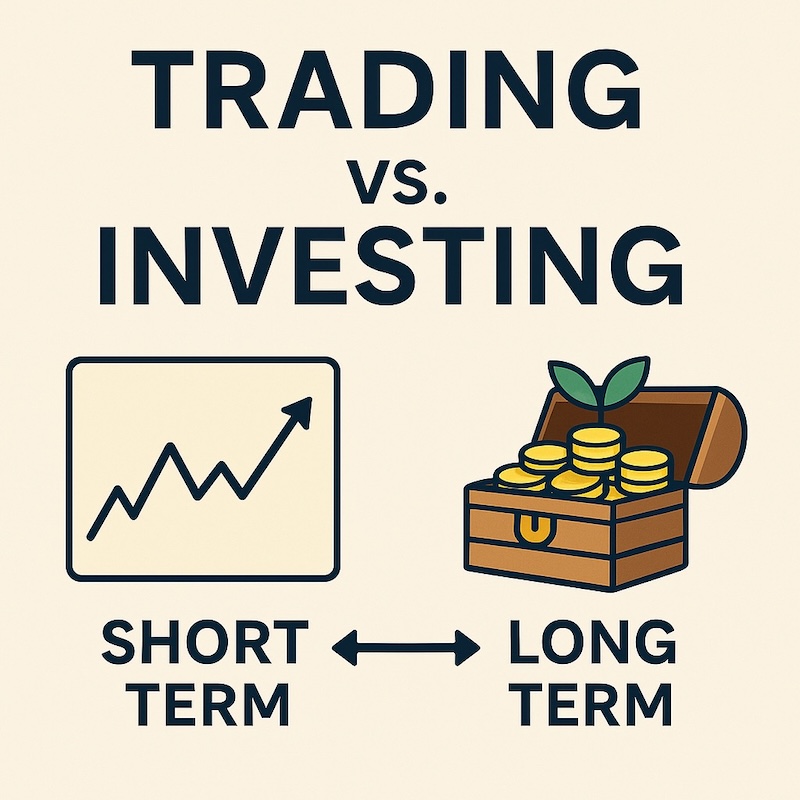
This article breaks down the definitions of trading and investing, compares them side by side, explores their pros and cons, and helps you decide which approach might suit you best.
- What Is Trading?
- What Is Investing?
- Key Differences Between Trading and Investing
- 1. Time Horizon
- 2. Risk
- 3. Potential Returns
- 4. Tools and Analysis
- Pros and Cons of Trading vs Investing
- Pros of Trading
- Cons of Trading
- Pros of Investing
- Cons of Investing
- Which One Is Right for You?
- Key Takeaways
- FAQ
- Is trading riskier than investing?
- Can I do both trading and investing?
- Which is better: trading or investing?
- Do I need a lot of money to start?
- Which is more time-consuming?
What Is Trading?
Trading refers to buying and selling financial instruments such as stocks, currencies, commodities, or cryptocurrencies with the goal of generating short-term profits. Traders seek to take advantage of small price fluctuations and typically hold assets for days, hours, or even minutes.
Both trading and investing take place within broader financial markets, such as stock exchanges, Forex, commodities, or bond markets. Understanding these markets is key before deciding on your strategy.
- Time Horizon: Short-term (from seconds to weeks).
- Mindset: Focus on short-term market opportunities, technical patterns, and momentum.
- Examples of Trading Styles:
- Day trading: entering and exiting positions within the same day.
- Swing trading: holding assets for a few days or weeks to capture trends.
- Scalping: making dozens of very small trades within minutes or hours.
Example: A day trader might buy Tesla shares in the morning when the stock dips and sell them in the afternoon after a 3% price increase. The profit is realized quickly, but the risk of loss is equally immediate.
What Is Investing?
Investing is the practice of allocating money into assets with the expectation of long-term growth and income. Investors typically focus on fundamentals rather than short-term price swings. The aim is to build wealth gradually over years or decades.
- Time Horizon: Long-term (years to decades).
- Mindset: Focus on company earnings, macroeconomic factors, dividends, and compounding growth.
- Examples of Investing Strategies:
- Value investing: buying undervalued companies with strong fundamentals.
- Growth investing: targeting companies expected to grow faster than the market.
- Index investing: holding diversified ETFs or index funds that track markets like the S&P 500.
Example: An investor may buy Apple stock and hold it for 15 years, benefiting from stock appreciation, reinvested dividends, and compounding returns.
Key Differences Between Trading and Investing
Although trading and investing overlap in using financial markets, their differences are substantial.
1. Time Horizon
- Trading: Short-term focus, from minutes to weeks.
- Investing: Long-term focus, often decades.
2. Risk
- Trading: Higher risk due to frequent exposure to volatility, leverage, and rapid decision-making.
- Investing: Lower relative risk if diversified, though still subject to market downturns.
3. Potential Returns
- Trading: Potential for quick, high returns, but also rapid losses.
- Investing: Steady growth over time through compounding and reinvestment.
4. Tools and Analysis
- Trading: Relies on technical analysis, charts, indicators (e.g., RSI, MACD, moving averages).
- Investing: Relies on fundamental analysis—earnings reports, valuation ratios, industry trends.
Pros and Cons of Trading vs Investing
Both approaches have strengths and weaknesses.
Pros of Trading
- Potential for quick profits.
- More exciting and dynamic for active personalities.
- Opportunities in both rising and falling markets (short selling).
Cons of Trading
- High stress and time commitment.
- Greater transaction costs due to frequent trades.
- High risk of losing capital, especially for beginners.
Pros of Investing
- Long-term wealth building through compounding.
- Less time-intensive than trading.
- Lower transaction costs when using buy-and-hold strategies.
- Historically proven: broad equity markets (like the S&P 500) have delivered ~8–10% annual returns over decades.
Cons of Investing
- Requires patience and discipline; no instant gratification.
- Vulnerable to market downturns in the short term.
- Lower excitement compared to the fast-paced world of trading.
Which One Is Right for You?
Choosing between investing or trading depends on your goals, risk appetite, and lifestyle.
- Trading may suit you if:
- You enjoy analyzing charts and making quick decisions.
- You have time to monitor markets daily.
- You can tolerate higher risk and volatility.
- Investing may suit you if:
- You want to build long-term wealth.
- You prefer stability over rapid gains.
- You don’t want to spend hours glued to market screens.
For many people, the best strategy is a combination of both. For example, you might allocate 80% of your portfolio to long-term investments (stocks, bonds, ETFs) and use 20% for active trading. This way, you balance steady growth with opportunities for higher short-term returns.
Key Takeaways
- Trading vs investing is mainly about time horizon and risk profile.
- Trading focuses on short-term gains through frequent buying and selling.
- Investing builds long-term wealth through compounding and fundamentals.
- Trading is riskier but potentially more profitable in the short term.
- Investing is steadier, less stressful, and historically reliable.
- The choice depends on your financial goals, time availability, and personality.
FAQ
Is trading riskier than investing?
Yes. Trading involves high-frequency decisions, leverage, and exposure to volatility, making it riskier than long-term investing.
Can I do both trading and investing?
Absolutely. Many people invest the majority of their money for the long term while trading a smaller portion for short-term opportunities.
Which is better: trading or investing?
Neither is universally better—it depends on your goals. Investing is better for long-term wealth, while trading may suit those seeking quick, higher-risk profits.
Do I need a lot of money to start?
Not necessarily. Many brokers allow both traders and investors to begin with small amounts, though your capital should align with your risk tolerance.
Which is more time-consuming?
Trading requires active monitoring and quick reactions. Investing usually demands less time, focusing on research and periodic portfolio reviews.

